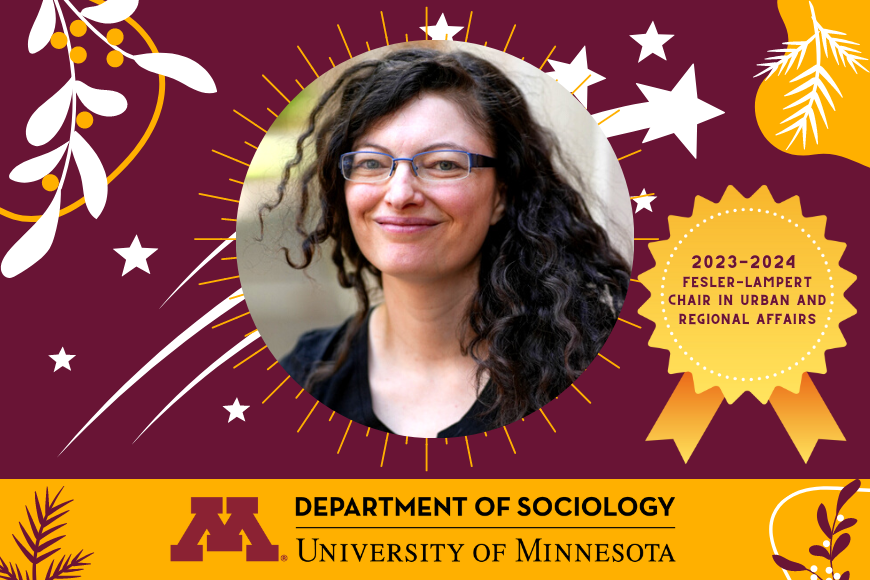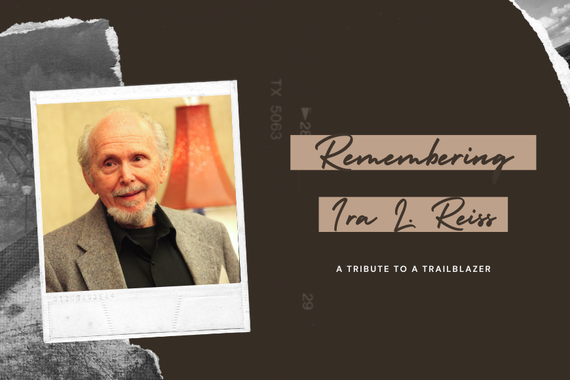Elizabeth Wrigley-Field Named 2023-2024 Fesler-Lampert Chair in Urban and Regional Affairs
Congratulations to UMN Sociology & Minnesota Population Center (MPC) Assistant Professor Elizabeth Wrigley-Field who has been named the 2023-2024 Fesler-Lampert Chair in Urban and Regional Affairs with her research project, "How racial stratification and neighborhood socioeconomic deprivation intersect in Minnesota’s mortality."
PROJECT ABSTRACT: 2020 marked a major upheaval in how racial stratification and neighborhood socioeconomic deprivation (e.g., neighborhood poverty rates) intersect in structuring mortality risk in Minnesota. Before the Covid-19 pandemic, racial stratification in mortality aligned strongly with neighborhood deprivation. The early pandemic changed that. But what has happened since and what is happening now? Has Minnesota returned to its pre-pandemic patterns of inequity, has it maintained the new patterns it developed early in the pandemic, or has something wholly new emerged? And in the era in which the dominant Covid-19 variant is Omicron, vaccines are widespread but unevenly adopted, and much of life has seemingly “returned to normal,” how is mortality risk—from Covid-19 but also from many other causes of death—distributed in Minnesota? The results of this research project can offer concrete guidance about how best to target limited health resources within the state.
The Fesler-Lampert Chair is one of four endowed chairs made possible through the generosity and vision of David and Elizabeth Fesler to honor Mr. Fesler’s grandfathers, Bert Fesler and Jacob Lampert. The endowment is intended to stimulate interdisciplinary research and teaching through the appointment of distinguished, broadly learned scholars to endowed faculty positions at the University of Minnesota. Previous holders of the chair have used this support to complete projects on urban environmental policy advocacy in the Twin Cities, employee turnover and retention rates at Minnesota companies, and the impact of computer networks on civic life in rural Minnesota communities.



